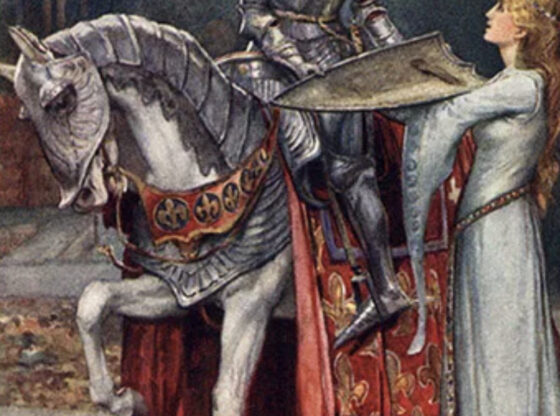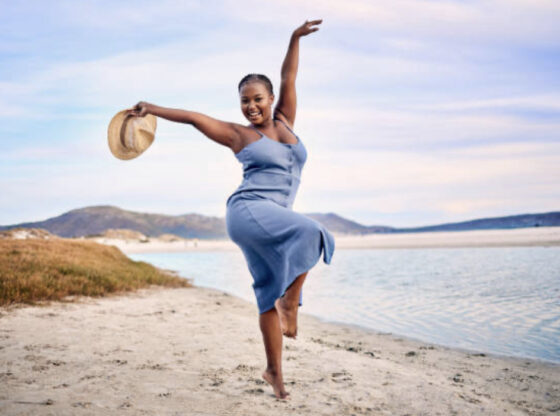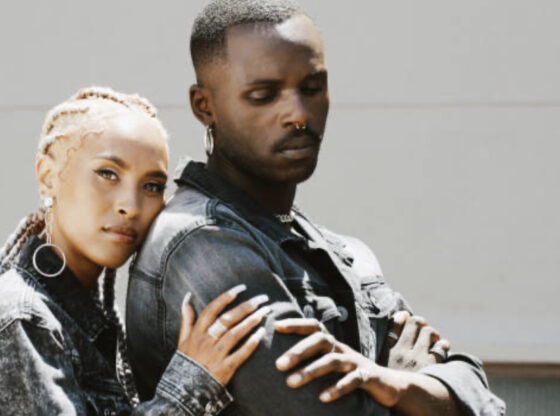Chivalry & Tradition–A Black Perspective
By Darryl James
Chivalry: 1. Gallantry, courtesy, and honor. 2. The noble qualities a knight was supposed to have, such as courage and a readiness to help the weak. 3. The demonstration of any of these qualities.
We often hear that Chivalry is dying, or that the art is dead, but many of us have no idea why.
In its purest definition, Chivalry is truly dead. Chivalry refers to the code of ethics and conduct of a knight (or chevalier) during the Middle Ages, where his horse, weapons, attendants, and flag were concerned. The code had nothing to do with conduct in love until much later.
After the Crusades, poets turned Chivalry into something beyond the code of the chevaliers. The new Chivalry became a code of courting and a code of honor in love, as opposed to war.
None of us can be honest and discuss the death of Chivalry without also discussing its diminishing at the hands of both men and women. Currently, women discuss how men are no longer chivalrous, while men discuss how women have been rejecting Chivalry.
Modern Chivalry fit fairly well during a time before the current women’s rights movement, when women began to reject traditional roles and behavior, including the roles and behavior required for garnering chivalrous behavior.
For example, feminism taught women that displays of Chivalry were, in many ways demeaning and condescending. The new idea was that since men did not hold doors for each other, why would they do so for any other equal? The image of the chivalrous man protecting the weaker “damsel in distress” did not fit well with the evolving image of the woman as equal, strong and independent.
Strangely, many people today who speak of Chivalry and tradition frequently fail to spell out the woman’s obligations during the medieval institution, and in many ways romanticize yesterday’s Chivalry far deeper than the post-Crusade poets. The newer romanticized version has recreated the woman’s role, so that she is far less than weak or in distress, but still deserving of favorable treatment, specifically when it comes to who will pay for dinner.
In short, after an arduous program of attacking and seeking to re-write both Chivalry and tradition, today’s so-called “modern” woman is now attacking men for moving away from so-called “old-fashioned” standards.
Now, let me bring this thing home: The truly sad part for African Americans is that neither the historic nor the romanticized versions of tradition debated in most of today’s open forums actually belong to us.
Feminism, initiated by white women, was neither African, nor African American. Womanism is a new term rolling around the Black community, but even it has yet to evolve into a clear message.
To be clear, strong Black men with love and respect for womanhood have no problem being chivalrous, but we do have a problem with freedom and feminism being situational.
We will still hold the door for women, even though far too many neglect to offer gratitude, while some even act insulted by the courtesy. We will still offer to let a woman walk on the inside and allow her to go first as a courtesy. But what we will not do is allow women to enjoy sitting back without a care in the world while we coordinate and pay for each and every date.
The part of Chivalry that dictated that men pay for all dates is outdated. It began in a time when women either didn’t work or worked in jobs that paid very little. Now the other part that has to be mentioned is that this was never a part of our tradition as African descendants in America.
When I hear people talk about Chivalry, dating and courting, inevitably talk of “tradition” comes next. But what fails to come up is a real focus on what our tradition really was.
For example, when Betty Shabazz first met Malcolm X, her first words to him were analyzing his health based on having a woman nurture him. She didn’t wait to see where he would take her, she paid attention to what he was doing and what he needed and in return, he did the same. That’s our tradition.
Traditionally, a man would express interest in a woman and the first date would be in the form of dinner at her family’s home, so the family could check him out. Perhaps he would even attend church service with her, but the focus was not on his demonstration of entertainment arrangement skills (Does anyone remember going “Dutch?”), but on the two of them checking each other out. That’s traditional.
In yesteryear, men were looked at as the sole breadwinners, but that was neither African, nor African American. Black women have always worked and were partners in the finances. That’s traditional.
Of course, there are some of us who can recall stay at home mothers, who were purely housewives, but that was never the majority of us.
As for Chivalry, men are being blamed for the demise of the art, but women also used to be more chivalrous than they currently are. For example, Betty Shabazz offering to nurture Brother Malcolm was a chivalrous act.
The point is that if we really want to be traditional, there is more work involved than having a man take a woman to an expensive dinner or on a series of dates where he pays. Chivalry and tradition worked both ways.
For every woman who claims to want a man who is old fashioned, the question has to be asked whether or not she can actually cook a meal and whether she is actually willing to invite a man over to her home for a home cooked meal. Old-fashioned women could cook as well as clean, even as feminism was evolving. Remember the commercial message of empowerment from the eighties? It went something like this: “I can bring home the bacon and fry it up in the pan, ’cause I’m a woman…”
The point is that we cannot be one-sided or revisionist when it comes to tradition and being old fashioned.
Both men and women must be honest about the current condition, which has Chivalry seriously wounded and its image confused and tarnished. We are not going to move forward with simple-minded demands that we hold on to something that is evaporating, or that we go back to something that has been evolving. When you talk of a return to Chivalry, what stage of Chivalry are you referring to? At what point in time?
If Chivalry is dead, but was a good thing, where did it go wrong?
I assert that Chivalry was attacked because it was misinterpreted. Instead of viewing it as a mutual art, yesterday’s feminists saw the deference to females as negative. The perception was that old-fashioned Chivalry was showered on women who were weaker than men, which had to be rejected by women who were seeking equality. But Chivalry was also about courtesy and respect, both given and received.
Men should still pursue courtesy and respect for womanhood. We need to teach young men how to be gentlemen, so that our real traditions can be passed on.
Women who wish to receive Chivalry today, must do two things: Stand ready to return the respect and courtesy, and communicate those desires properly.
Since there is no universally accepted definition of Chivalry, we must define our own individual concepts of Chivalry and discuss them with potential partners to see if they are practical and applicable. We must communicate and compromise.
Now, that’s traditional!






